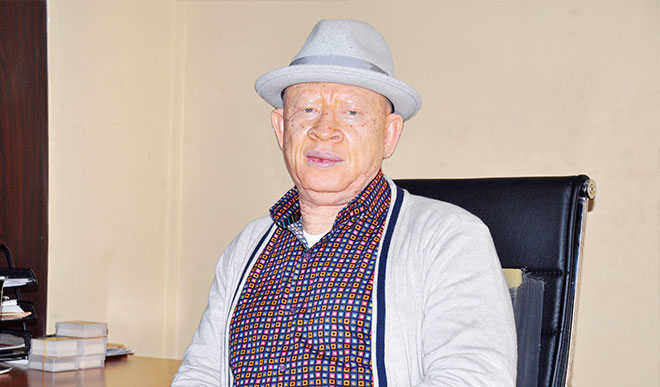Mr Jake Epelle, Chief Executive Officer, The Albino Foundation (TAF) Africa, has called for investment in Nigeria’s electoral reforms to enhance its electoral process.
Epelle made the call on Thursday in Abuja at a Political Inclusion Index Tool Review and Validation Meeting.
He said that taking a cue from the challenges encountered during the 2023 general elections, there was need for electoral reforms.
“Let me use this opportunity to call on the President, Bola Tinubu, to invest in electoral reforms.Let us not turn the other way and feel that nothing happened.
“Something went wrong in this past election and we must fix it,” he said.
He said that the organisation believes in research, data, evidence driven advocacy and implementation which gave rise to the creation of the political inclusion index.
“We came together to agree to invest in the political index which will be a thorough interrogation of some very salient issues around disability as it relates to political inclusion, it is also a step in the right direction.
“This is because we are not only looking at Persons With Disability (PWDs) which is a segment of it but across board with emphasis on the role and participation of women in enhancing our electoral process.
“Many times when people talk about women they fail to remember that there are women with disability and so this is an opportunity to interrogate various aspects of the electoral process that will make it holistic and truly inclusive,” he said.
The Programmes Manager, TAF Africa, Mr Olayemi Samuel, said that the index would help in assessing the performance of PWDs with relation to their inclusion in the political process.
According to him, there are already existing laws both at national, regional and international levels that promote the participation of PWDs in governance, election and political processes.
“However, this tool is going to help us to track the compliance of those laws in terms of the participation of PWDs in the electoral processes.
“There is a progress in terms of disability inclusion in Nigeria. We are no longer where we used to be.
“Of course we still need to continue with our advocacy in ensuring that PWDs are included both in the planning process, implementation process and even decision making processes.
“This will go a long way in enhancing the inclusion of PWDs in the political process,”he said.
Related Articles
Ms Lois Auta, Founder, Cedar Seed Foundation, said that though some milestones and achievements have been recorded in the PWDs community, members were still at a minimal level of participation.
One of the milestones recorded according to her is the enactment of the Nigerian Disability Act.
“In Section 30, it categorically talks about the political inclusion of PWDs and Article 29 of the United Nations Convention on the Rights of PWDs also gives PWDs the right to vote and to be voted for.
“Haven ran for elections, there were challenges but we should not capitalise on challenges. We want to see solutions and one of the solutions is having this disability index tool that is being validated today.”
Auta said that the tool is expected to enhance the prioritisation of issues of PWDs in every institution.
“We want to see accessibility to infrastructures we want to see institutional barrier being top of the game by having these beautiful policies, legal frameworks and laws that we have, especially disability laws being implemented.
“We want to see the human rights model achieved in this country and not the charity model.
“We want to see inclusivity in our educational sector, in employment, our health sector needs to be improved to ensure that services and facilities are accessible and inclusive to PWDs with emphasis on women and girls with disabilities.”
The index has components of roles that are to be played by security institutions, Electoral Management Bodies (EMBs), media organisations and political parties.
For the political parties, they should commit to existence of internal policies or a specific commitment to promote the inclusion of PWDs in candidate selection process.
For security institutions, they have to ensure the existence of a dedicated policy, guidelines or commitment to ensure the safety, security and non-discrimination of PWDs during the electioneering process.
The EMBs are to ensure the existence of a policy or guideline that explicitly recognises and promotes the inclusion and participation of PWDs in the electoral process.
Meanwhile, the media is to promote disability inclusiveness in media coverage.








